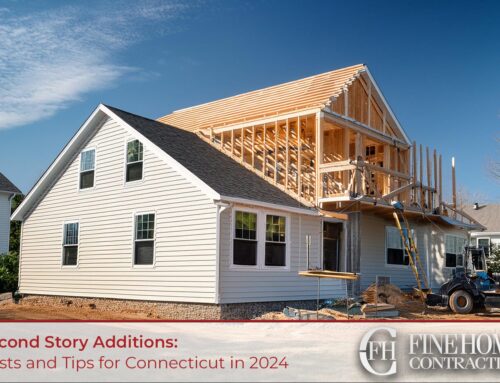One of the perks of owning a home in Connecticut is the wide variety of antique and historic homes to choose from. Unfortunately, even if your home isn’t old enough to be historic, many of these dated properties have outdated electrical systems that are unsafe, fail to pass inspections, or otherwise fail to meet the needs of modern homeowners.
For those considering purchasing a starter home, planning a major renovation, or just experiencing electrical issues, it can be helpful to know the most common electrical issues in homes and their causes.
The Most Common Electrical Issues in Homes and Their Causes
Signs You Need an Electrical Upgrade
Spotting any of these red flags is a good indication that your home’s electrical system is outdated or potentially dangerous and requires professional upgrades or repairs for safety. The age of your home can also signal the need for upgrades – any home with wiring over 20 years old may require upgrades to meet modern safety codes and electrical demands. If your home still has a fuse box, knob and tube wiring, or aluminum wiring, upgrades are absolutely essential. Consult a licensed electrician at the first sign of any issues for a thorough inspection and repair recommendations.
Upgrading the Electrical System
Improving electrical safety throughout your home can often requires a mix of repairs. Here’s our tips for getting started with identifying and fixing your home’s electrical issues.
Hire a Licensed Electrician
A qualified electrician should inspect the electrical system to advise which upgrades are needed. The issues mentioned above can be caused by a variety of causes, and without experience as an electrician, it can be difficult to tell the root cause. Attempting an unnecessary electrical panel upgrade when the issues are caused by frayed wires or another issue could be a waste of thousands of dollars. Never attempt electrical work without proper training and protective equipment.
Replacing the Electrical Panel
Upgrading to a higher amp service panel and adding more breaker circuits often improves functionality, and in the case of older panels can be critical to your safety. It’s important to know that many of these electric panels are on back order or otherwise can take quite a long time to arrive, so if your electrical upgrade is a part of a larger remodel, you should plan your work schedule to accommodate any delays caused by the panel.
Installing GFCI Outlets
GFCI outlets have a safety switch to prevent shocks. These should be installed in kitchens, bathrooms and other wet areas wherever possible, and in most places are required by building codes.
Rewiring the Home
For old, damaged wiring, a complete rewire of the home’s electrical system may be necessary. This is an extremely expensive process, as it often requires removing walls.
Electrical Safety Tips
While upgrading the system, there are minor improvements homeowners can make to increase electrical safety:
Use Surge Protectors
Plug electronics into surge protectors to prevent power spikes from damaging devices or starting fires.
Check for Faulty Appliances
Listen for buzzing or sizzling sounds, which can indicate faulty appliances drawing too much power through old wiring. Unplug them and have them repaired.
Update Lighting Fixtures
Replace old light switches and faded lamp cords, which can fray or spark over time.
Replace Old Light Switches
Switches from the 1950s-70s contained mercury and may make cracking noises indicating they should be updated.






